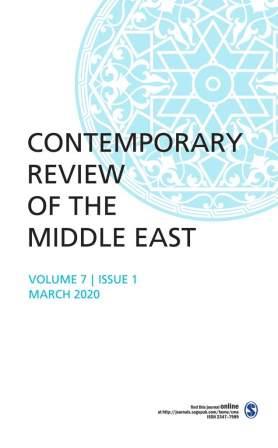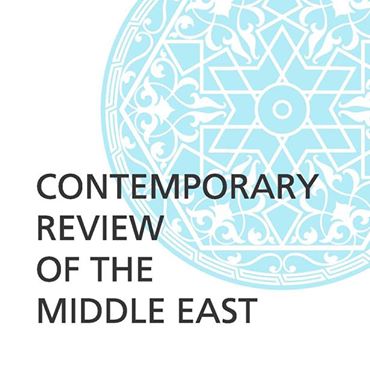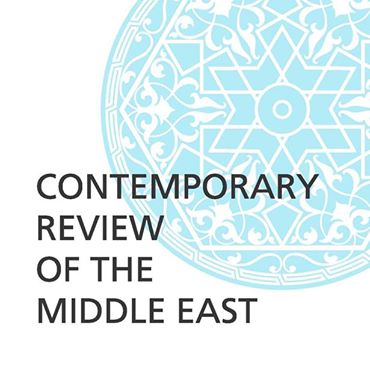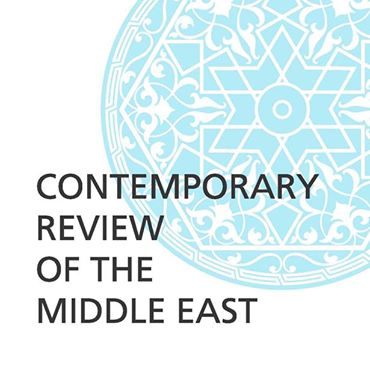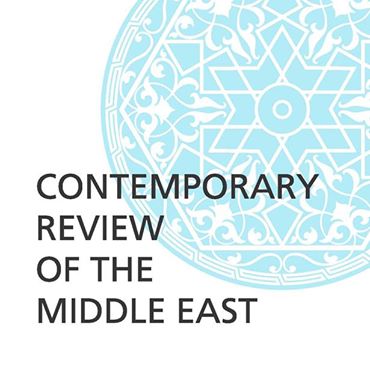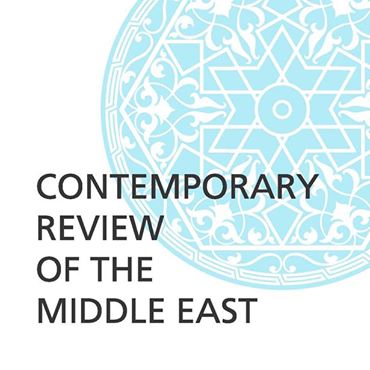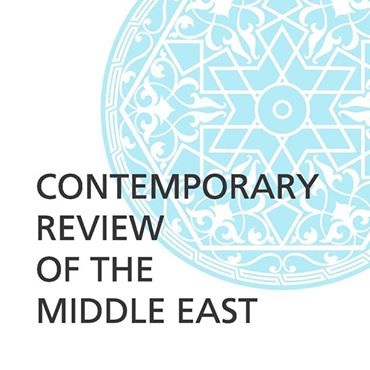Breaking
- MENU
Lorem Ipsum is simply dummy text of the printing and typesetting industry.
http://journals.sagepub.com/toc/cmea/2/3
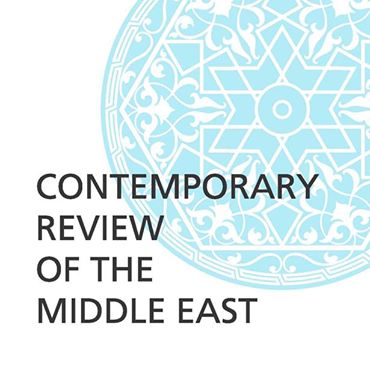
1) Dateline MEI By P.R. Kumaraswamy; pp. 173–175
2) Choosing the Right Strategy: Why the Palestinians Were More Successful in the First Intifada than in the Second? By Hillel Frisch; pp. 176–191
Abstract: Choosing a strategy that polarizes the rival’s political center is often critical in determining the relative success of the weaker side in asymmetric conflict. This proposition is tested on two rounds of protracted confrontations between Palestinians and Israel in 1987 and 2000. In the first intifada, the Palestinians limited terrorism primarily to the West Bank and Gaza, polarized the Israeli political center and secured substantial political gains. In the second, the Palestinians employed much more violent means and focused it within Israel. This indiscriminate strategy (which included suicide bombings) united the Israeli public against the Palestinians, justified the Israeli onslaught on the Palestinian Authority, and divided the Palestinians themselves at considerable political, human, and economic cost.
The comparison between Palestinian strategy and its consequences in two long rounds of conflict with the Israeli state suggests an important theoretical and empirical finding; it is not so much the strategy employed by the stronger side that determines outcomes as Ivan Arreguin-Toft suggests but the strategy employed by the weaker actor in conflict. Employing a strategy that polarizes the political center of the opponent and weakens its resolve is critical to the insurgent’s ability to succeed against its stronger opponent. In the first intifada, the Palestinians were able to polarize the foe’s political center. In the second intifada, the Palestinians failed to do the same at substantial human, material, and political costs, including a civil war in 2007 and the Hamas’ takeover of Gaza.
3) “Sharing is Caring”: Online Self-disclosure, Offline Social Support, and Social Network Site Usage in the UAE By Azza Abdel-Azim Mohamed Ahmed; pp. 192–219
Abstract: The Arab information about themselves through social networking sites and offline social support affect the pattern of online self-disclosure. The impact of the social network site (SNS), size of a user’s pool of friends, the intensity of SNS usage, and attitudes toward online self-disclosure are examined through applied qualitative and quantitative research methodologies. A total of 313 Arab residents of the United Arab Emirates living in Dubai and Abu Dhabi formed the sample of a survey. Constructed in-depth interviews were conducted with 69 Arab residents in the UAE. The findings indicated a positive significant correlation between online self-disclosures and the diversity of SNS audience, while intensity of SNS usage did not correlate to online self-disclosure. The more respondents had emotional and informational offline support, the more they were likely to be “honest” in their online self-disclosure. Females are higher in social companionship, emotional, and informational forms of offline social support than males, while the latter are more likely to disclose personal information online than females. Males practice “parental authority” with females to protect them from possible dangers of online self-disclosure. In-depth interviews showed that SNS users carefully govern the amount of information they post on SNSs and to whom they make it available.
4) Dismantling Kurdish Texts: An Orientalist Approach By Jalil Karimi, Ahmad Mohammadpur, Karim Mahmoodi; pp. 220–237
Abstract: This article presents some critical results of a study on Kurdish texts written by the Western writers. The main aim of the article is to explore how the Kurds have been represented in these texts or fieldworks. The theoretical framework is based on the postcolonial approach, mainly Edward Said’s Orientalism theory, which aims at challenging the assumed solidarity and authority of the Western knowledge through studying and analyzing the colonial discourse as well as criticizing the colonial history. The findings have been presented in some categories, such as, nominal generalization, exoticism, asynchronism, myth-making, essentialism, strategic formation and access to discourse, strategic location, and moral position. According to the result, the Kurdish domain has a variety of usual models and clichés similar to the Oriental discourse. In addition, in recent decades, signs of understanding, sensitivity, and tolerance toward the Kurds have evolved.
5) The Needs and Priorities of Women in the UAE: Identifying Struggles and Enhancing Satisfaction of Employment, Education, Health Care, and Rights By Badreya Al-Jenaibi; pp. 238–268
Abstract: This study focuses on the needs and priorities of local women in the United Arab Emirates (UAE). A face-to-face questionnaire was conducted with 981 local women in the Abu Dhabi region, focusing on women’s knowledge and perceptions of the services provided by the Government of Abu Dhabi. The research has implications for the following areas: education, health services, the labor market, housing, and social security. The sample includes a diverse population of local women of different ages, educational backgrounds, and professions. The aim of the research is to investigate the needs and determine the level of satisfaction of employment, education, health care, and rights among UAE women. This study finds that the government provides high-quality services for adult-continuing education and vocational training and women are keenly aware that nationals of both genders should be given equal employment opportunities in the public sector and that if the government wants to encourage women to work while still keeping Emirati fertility rates high, it must enact more flexible and favorable labor laws to ensure protection of workers’ rights.
6) Tunisia: Presidential and Parliamentary Elections, 2014 By Md. Muddassir Quamar; pp. 269–288
Abstract: The 2014 election results and the maturity displayed by principle political parties, especially Nidaa Tounes and Ennahda, bodes well for democratization in Tunisia. It remains the only successful story of the Arab Spring but is threatened by terrorist strikes by Islamic State and political violence by local terrorist groups, such as, Ansar al-Sharia. Economic instability too has been a cause of concern. Amidst these challenges that threatened to derail the transition process, the adoption of a new constitution and conduct of free and fair polling for presidential and parliamentary elections have been major achievements. The election results threw a surprise with the secular nationalist Nidaa Tounes emerging as the leading party. Significantly, all the political actors accepted the results, the winners avoided triumphalism while those who lost conceded defeat which indicates the level of faith in the institutionalized process of political transition. Formation of a national unity government after the election indicates the recognition on part of the major political parties of their responsibility in strengthening democratic institutions and to provide good governance.
7) Egypt: Presidential Elections, 2014 By Paulami Sanyal; pp. 289–307
Abstract: The 2014 presidential elections in Egypt were an exercise in giving electoral legitimacy to el-Sisi who had removed Morsi in July 2013 to take control of an increasingly unstable Egypt. It also proved that Egypt’s tryst with democracy was short-lived and that the military continues to control its destiny. Except for the new constitution and the electoral laws, nothing in the run up to the elections could arouse confidence in the process. It was marked with curbs on media and civil society, under-representation of women, lack of clarity in the electoral procedures, and interference of state, security apparatus and business interests in favor of el-Sisi. Though voting and counting were termed free and fair by international observers, serious questions about the transparency of the electoral process were raised from many quarters. The continued crackdown on Muslim Brotherhood and local and international media, lack of opposition, and disqualification and withdrawal of all formidable opponent candidates undermined the process and took back Egypt to the pre-Tahrir Square years.
8) Book Review: Alexander Koensler (2015). Israeli-Palestinian Activism: Shifting Paradigms
Dipanwita Chakravortty; pp. 308–310
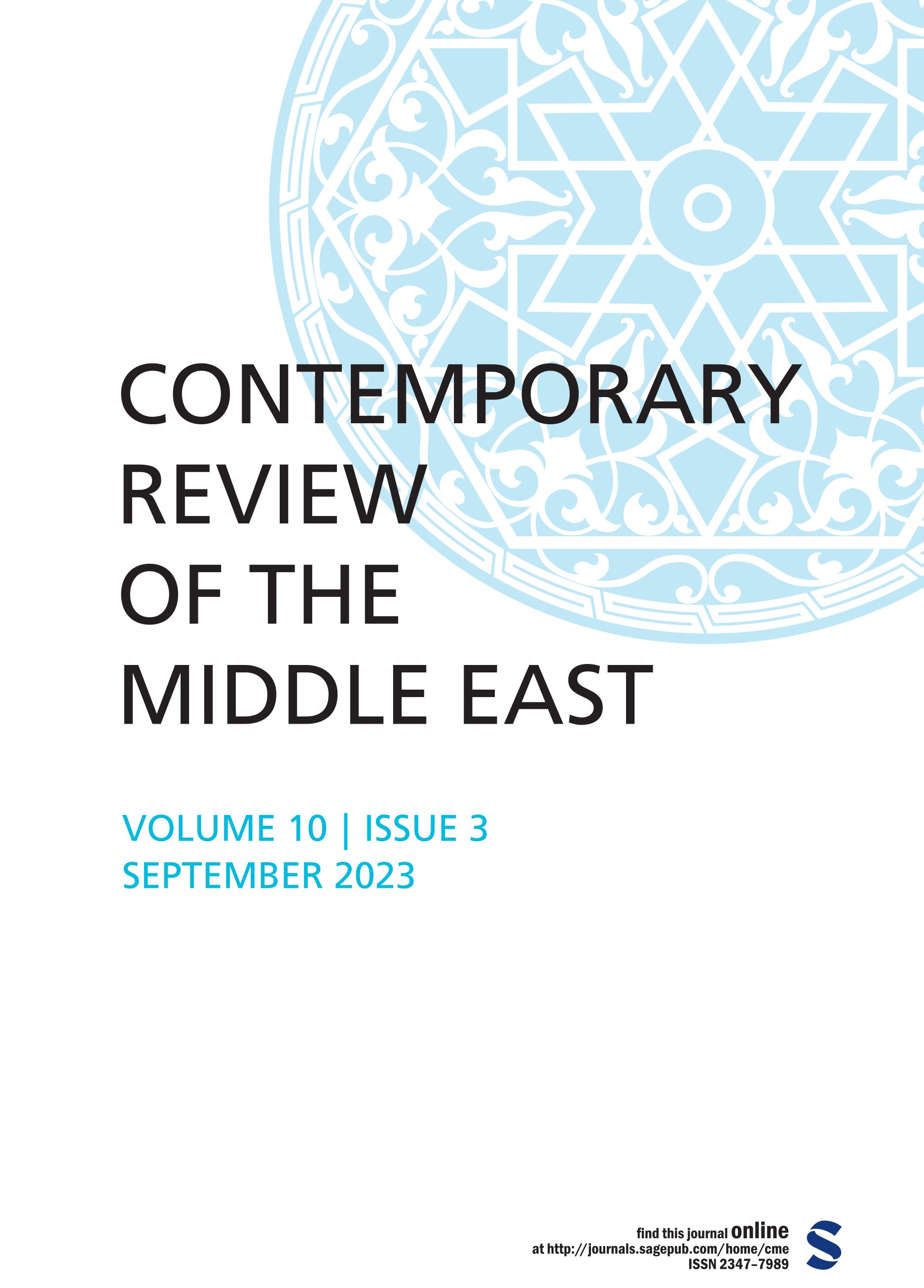
Invented Tradition as a Theoretical Approach Within Iranian Memory Studies: A Review Mohammad
Read More »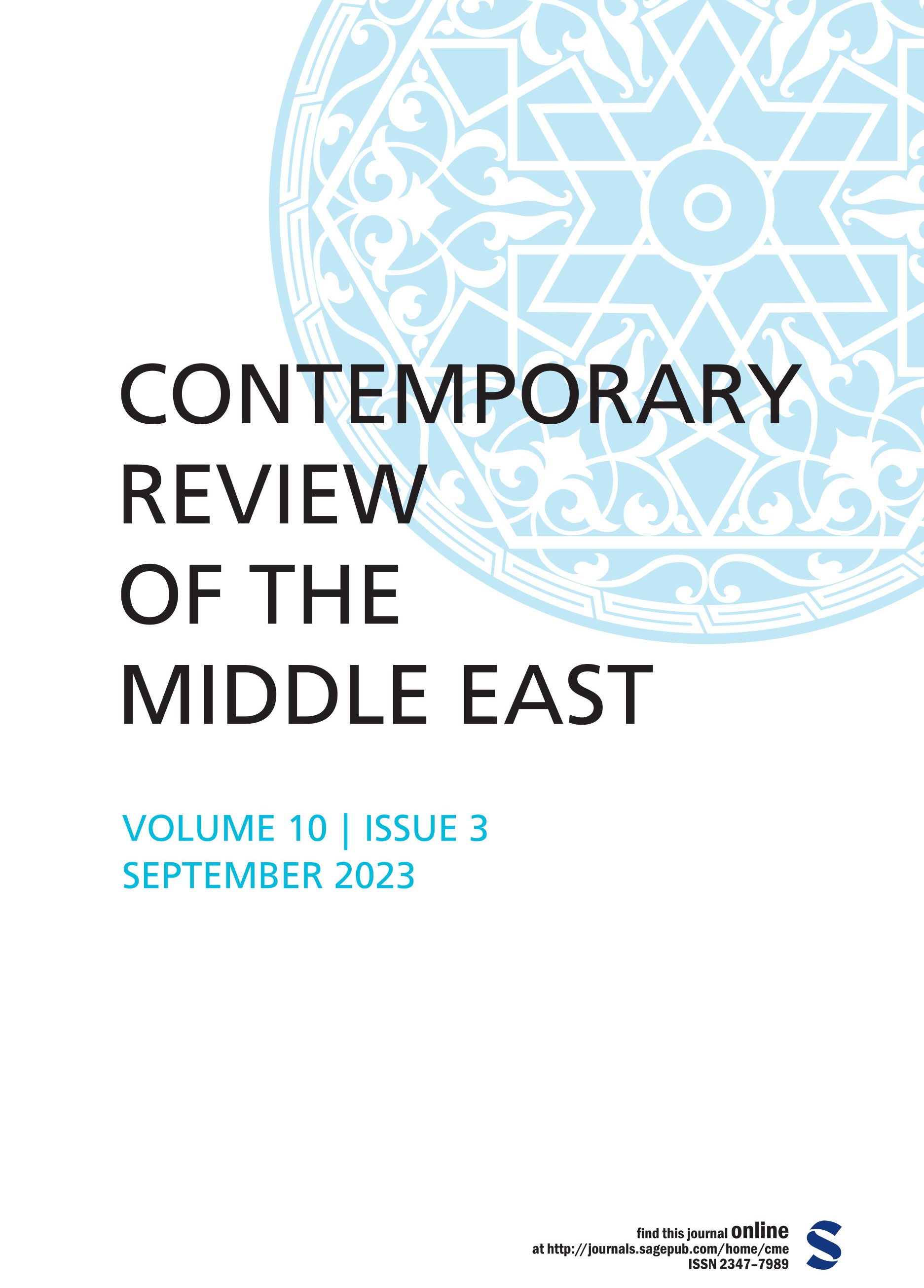
Neo-Ottoman Turk-Scape: Analyzing the Role of Dizis as Türkiye’s Soft Power Mohammad Reyaz and
Read More »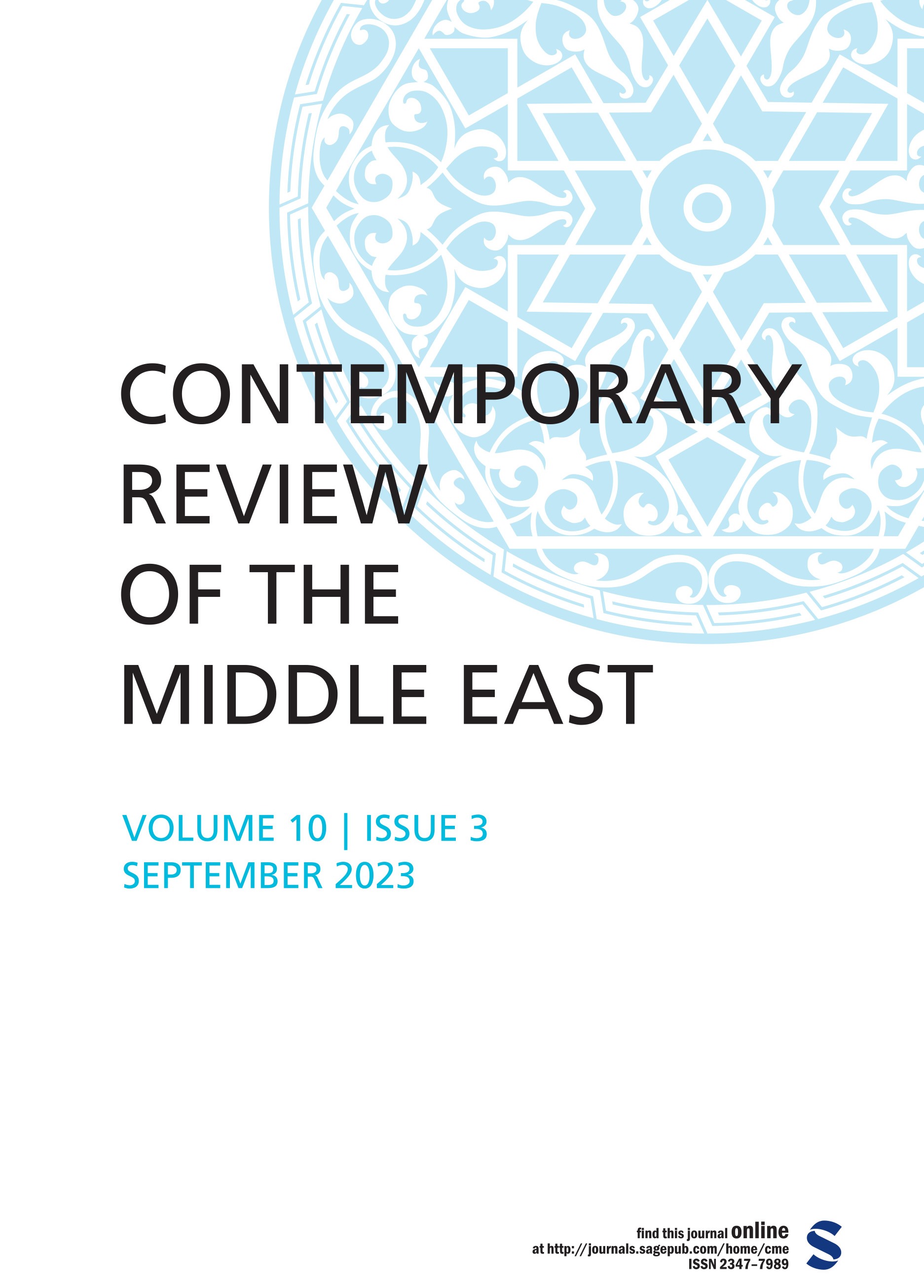
The Relations of Vietnam with the Middle East-North Africa Region: From a Divided State to an Important&
Read More »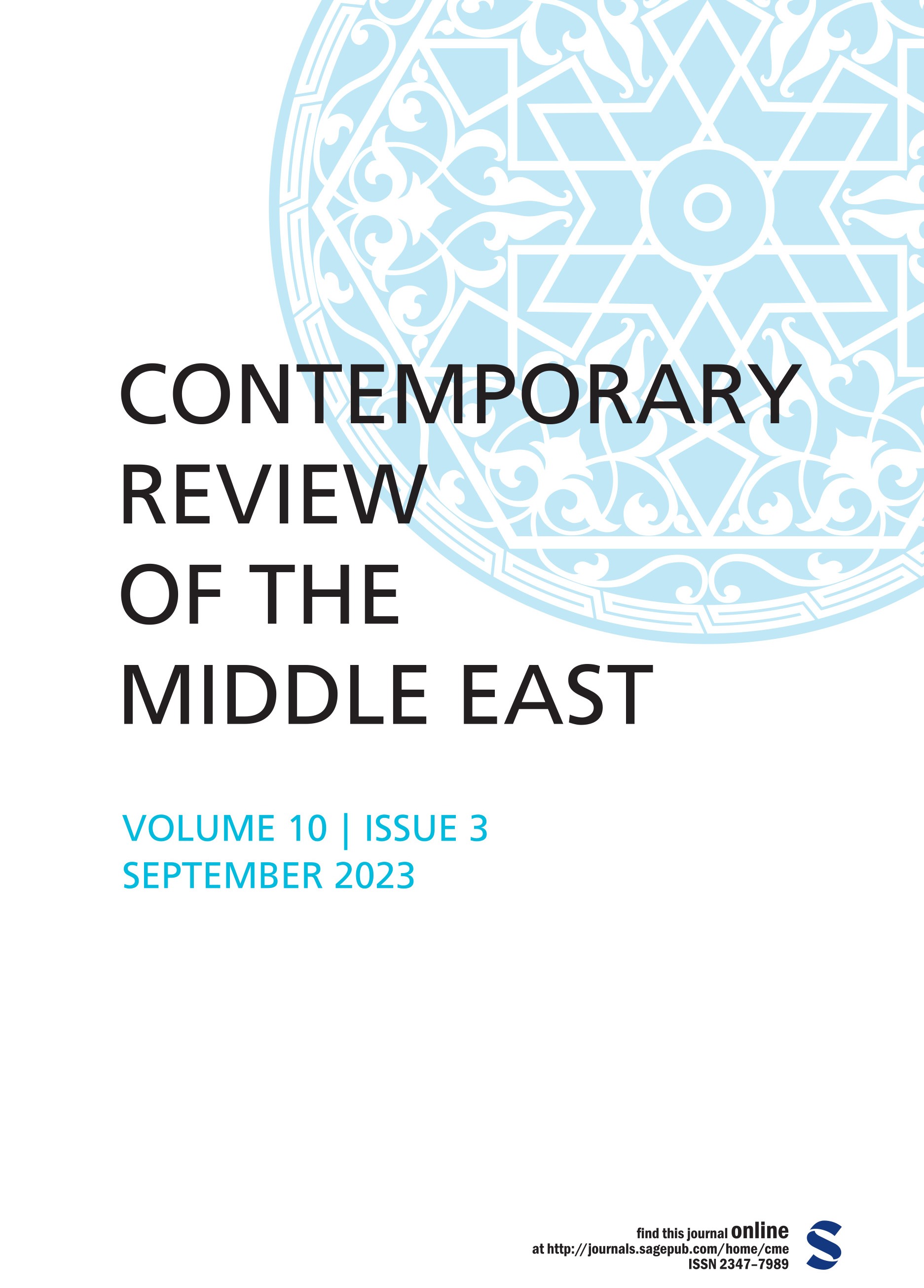
An Analysis of Yemen’s Geostrategic Significance and Saudi-Iranian Competition for Regional Hegemo
Read More »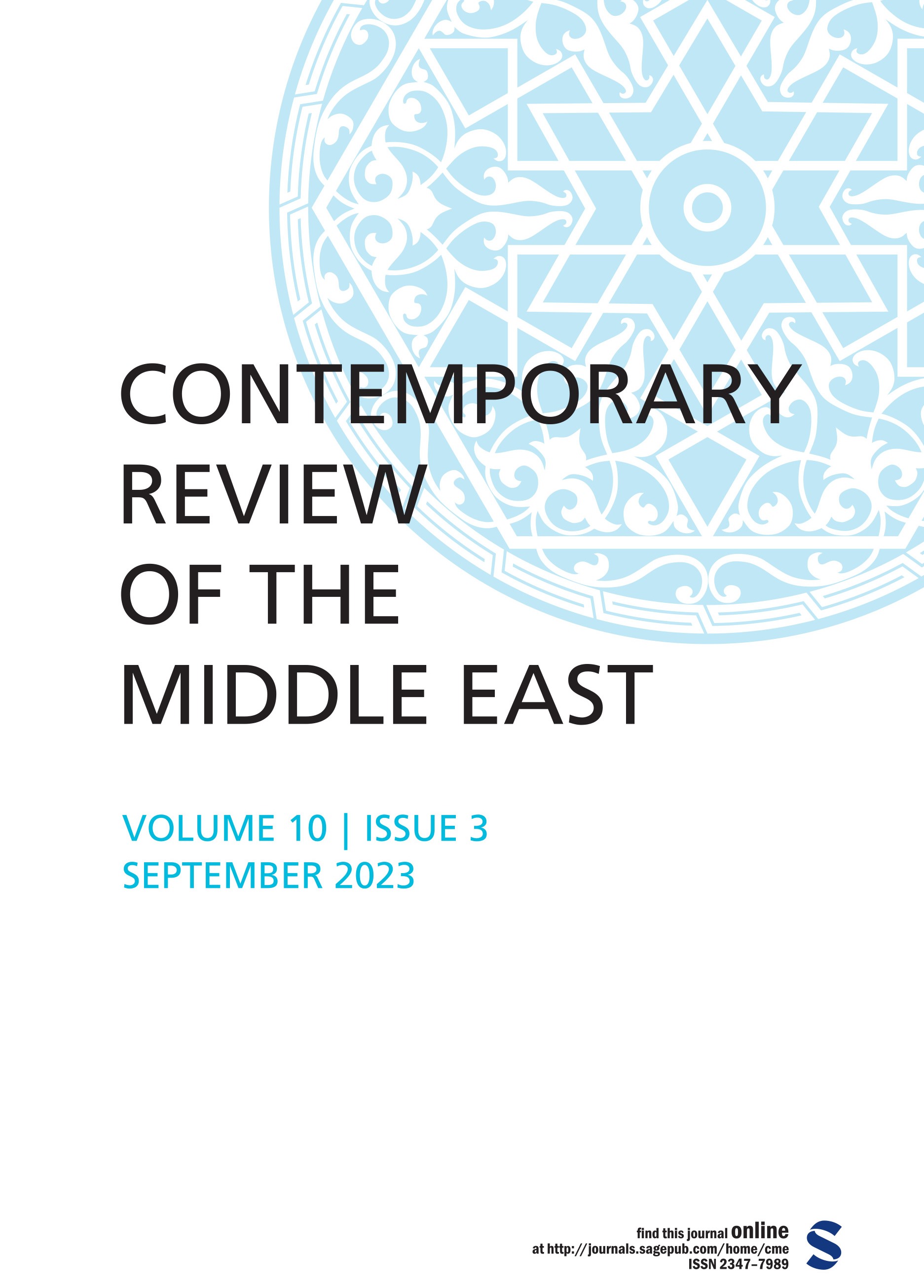
The National Reconciliation Process in Algeria During the Bouteflika’s Era: The Official Narrative Fa
Read More »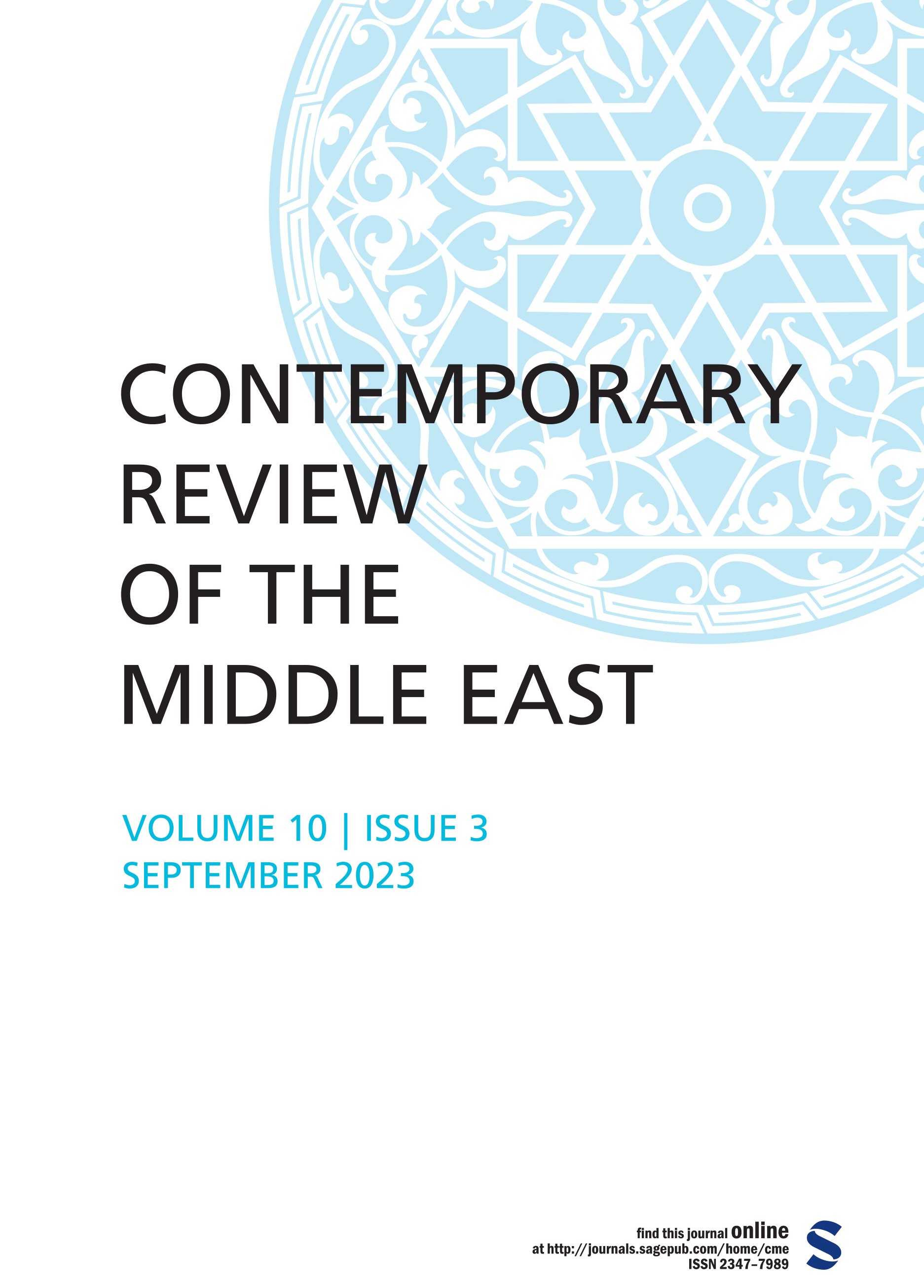
Dateline MEI When Netanyahu Rocks the Israel Boat, Nero Style P. R. Kumaraswamy For the text see: We
Read More ».jpg)
.jpg)
